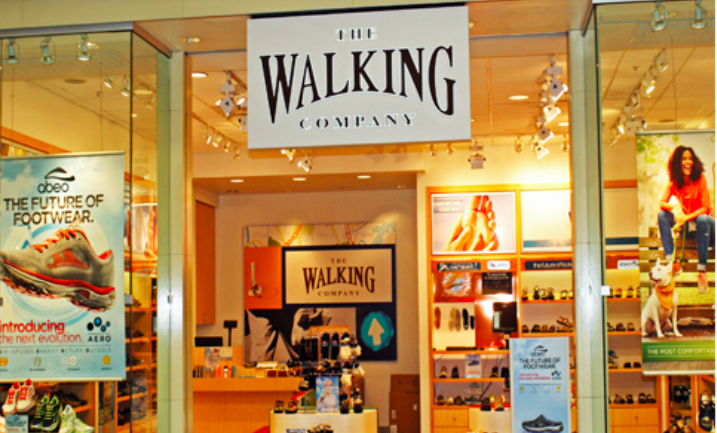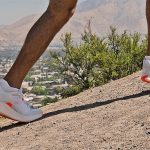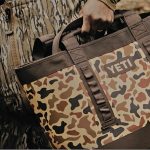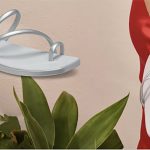Blaming challenges selling third-party wholesale brands with the rise of online selling, as well as losing rights to sell Ugg, The Walking Company (TWC) filed for bankruptcy for the second time in less than a decade.
The comfort shoe retailer initially filed for bankruptcy in December 2009 with a plan to close 90 of its 210 stores.
According to an affidavit filed Tuesday in United States Bankruptcy Court for the District of Delaware, Andrew Feshbach, president and CEO, said the first bankruptcy was due to the Great Recession’s impact on mall traffic and retail sales, as well as costs involved in rapidly opening 140 Walking Company doors from 2006 through 2008. The company had also been downsizing its Big Dogs casual-apparel chain, which had been facing pressures from big-box, mass-market retailers but that business “collapsed” faster than TWC’s management had anticipated.
By April 2010, however, TWC was able to emerge from the first bankruptcy with 207 of 210 former locations still in place after receiving rent concessions from the landlords and certain other concessions from key vendors.
Following its emergence from its 2009 reorganization through 2012, Walking Company’s “core business significantly improved. TWC then had a better rent structure for its newer stores, and it ceased the prior expansion of its store base,” wrote Feshbach in the affidavit.
During this period, TWC turned to significantly increase the development of its proprietary lines of comfort footwear and accessories, which contributed significantly greater profit margins to the company than sales of third-party brands.
Introduced in 2010, ABEO has been the most successful, with annual sales increasing to over $112 million by 2017, constituting 55 percent of TWC’s sales. The company also focused on increasing TWC’s direct-to-consumer (DTC) sales though an expansion of its internet business and development of website sales through its stores via in-store kiosks.
Sales of ABEO in recent years have also been expanded to wholesale and international distribution. These include independent comfort shoe retailers around the U.S. whose geographic sales areas do not conflict with those of The Walking Company stores.
These growth initiatives continued from 2014 to 2017.
Added Feshbach, “During this period, however, the increasing power of internet retailers made the traditional business of retail stores selling products manufactured by others increasingly difficult, and it also had an increasingly negative impact on customer traffic in shopping malls. The Debtors’ initiatives of developing its own proprietary shoe brands and increasing its direct-to-consumer business (internet and kiosk) were designed to offset these negative forces, and they were successful at doing so to a significant degree. However, at the end of 2016, TWC’s largest footwear vendor, Deckers Outdoor Corporation (the manufacturer of UGG footwear) terminated its vendor relationship with TWC. While TWC had previously phased out the distribution of other footwear brands and managed to replace the lost sales with sales of other brands (third party or private label), as a result of the difficult environment for store-based retailing in 2017, TWC could not replace the lost UGG sales fast enough.”
During mid- to late-2017, TWC sought rent concessions from its mall landlords. While it obtained a degree of concessions, for example in the form of deferred rent, the overall amount of these concessions was insufficient to offset both the continued soft sales in TWC’s mall stores during the 2017 holiday season and the loss of UGG sales. In addition, TWC then suffered a significant adverse impact when the firm, providing appraisals on TWC’s inventory to its lender, Wells Fargo, unexpectedly reduced its valuation of TWC’s inventory. Wrote Feshbach, “This resulted in a reduction of the amount of capital available to TWC under its credit line with Wells Fargo in spring of 2017 followed by a second, and even more unexpected, reduction in value in December of 2017.”
In its filing, TWC said it had obtained critical stakeholder support for a comprehensive recapitalization of the company. The company’s controlling shareholders have committed to invest $10 million in new equity into the company and it has obtained debtor-in-possession (DIP) financing from it lender, Wells Fargo Bank, for up to $50 million.
With the support from its stakeholders, negotiations with the company’s major landlords are “already well underway” and that is expected to allow the company to rationalize its lease portfolio of mall-based stores, bringing it in line with current market rents. Wells Fargo Bank will provide “exit” financing that, in addition to the company’s ongoing cash from operations, will allow The Walking Company to move forward as a substantially stronger company.
“This recap is the final step in transforming The Walking Company into a more vertically integrated, omni-channel retailer that can not only survive but thrive in the current retail environment,” said Feshbach in a statement. “The Walking Company has been very successful in developing its ABEO brand, which we have integrated with the sale of other leading comfort footwear brands from around the world. We also have made great progress in integrating our mall-based chain with our other channels of distribution, including internet, wholesale sales to independent comfort shoe retailers and international expansion.”
The company expects it will take 90 days to obtain confirmation of its plan by the Bankruptcy Court.
The bankruptcy petition listed assets between $100 million and $500 million and liabilities between $50 million and $100 million. The top unsecured creditors include many landlords that had been deferring payments. Among major brands, those left with unsecured claims included Dansko, owed $1.52 million; Ecco USA, owed $1.4 million and Rockport, $1.19 million.
Many of its Chinese parter suppliers also landed on the unsecured creditors list. The largest claim was held by Li & Fung, $5.2 million.
TWC now operates 208 stores in premium malls across the nation and the company’s website, www.thewalkingcompany.com. It employs over 1,600 people across the country and also includes Footsmart, acquired in 2016. The debtors purchased The Walking Company in 2004 and the business was founded 1991.
Photo courtesy TWC
















